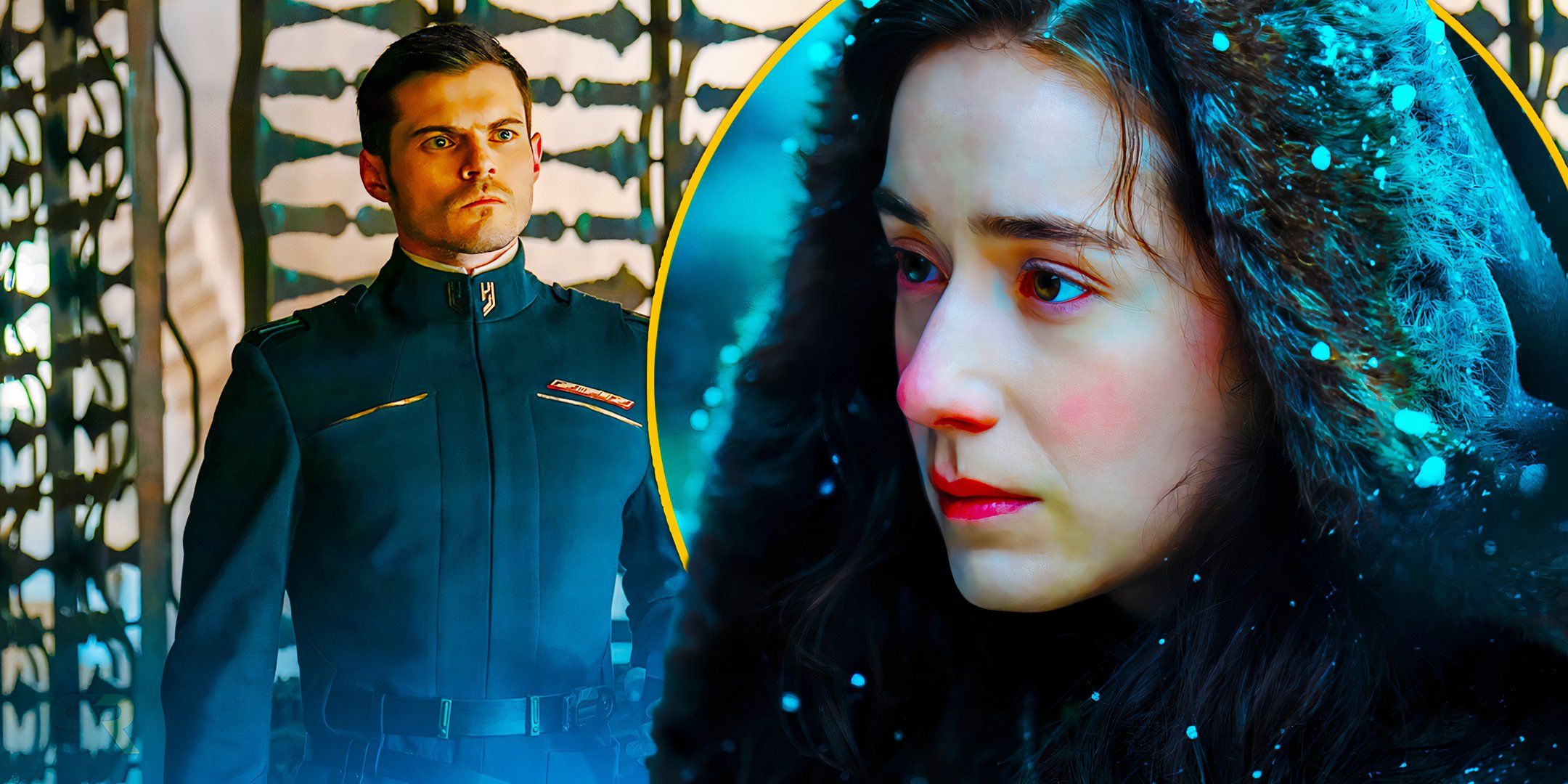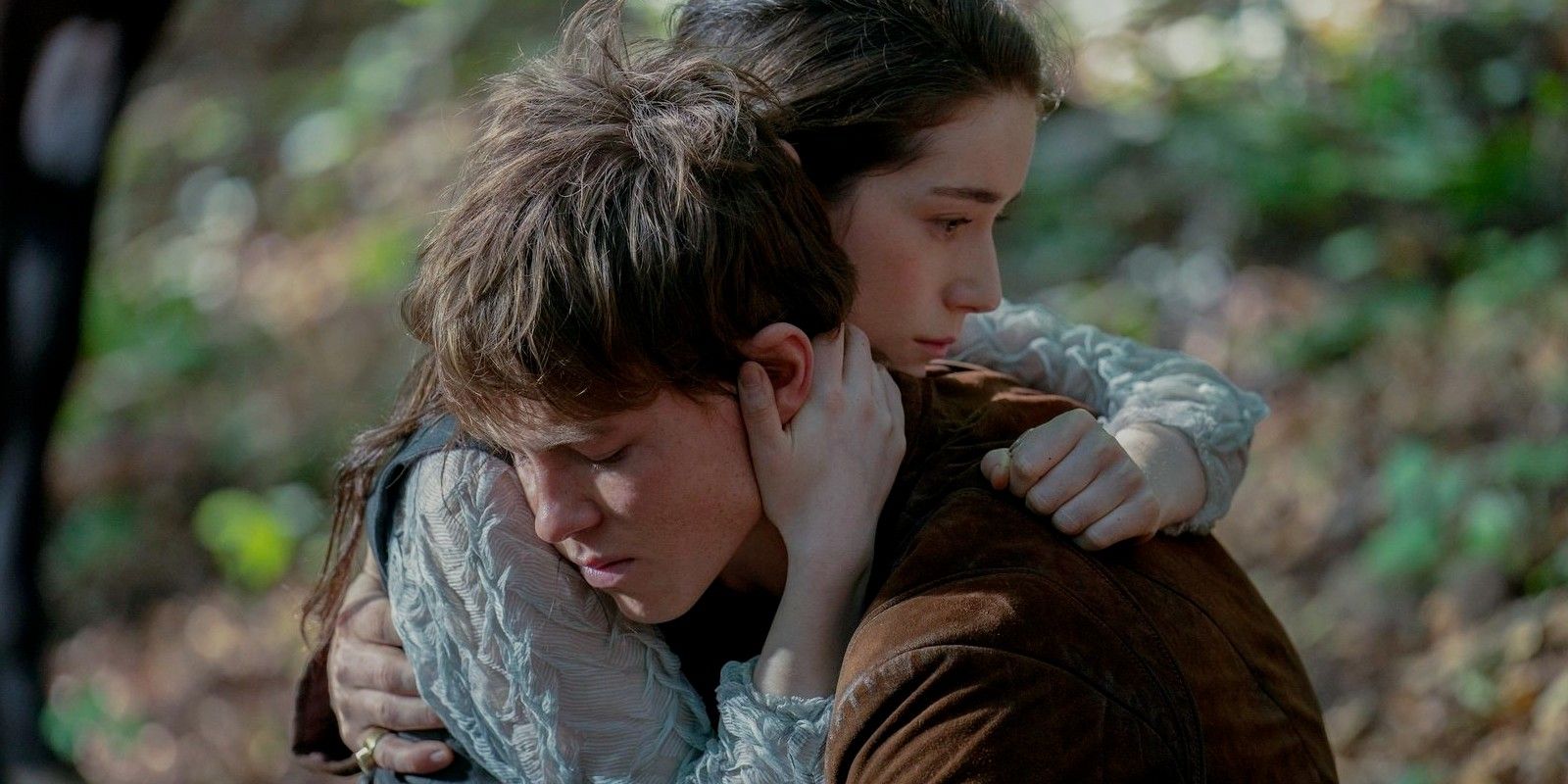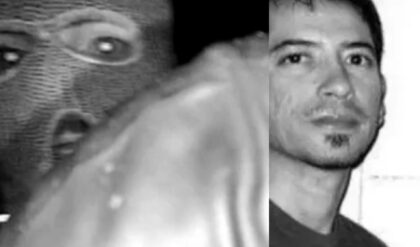
In an interview with Screen Rant‘s Tatiana Hullender, Canning reflected on her Harkonnen character’s star-crossed relationship with Orry Atreides. The two, drawn together despite their families’ generations-long enmity, represent a forbidden love that parallels Shakespeare’s Romeo and Juliet. Here’s what she had to say:
I think she 100% has fallen in love with him. It was kind of unanimous; the decision was made that this was a love story. These are star-crossed lovers a la Romeo and Juliet, trapped between two warring families.
Obviously, it’s not Tula’s intention to fall in love with Orry. I think it definitely gives her an in that he’s interested, and she takes it. I think she’s so used to looking outside of herself and watching to get feedback that her own feelings are often unknown to her. They really do creep up, and I think it all spins out of control.
I don’t think she expected him to ask her to marry her, and I don’t know if she even feels worthy of being someone’s wife. The fact that he’s viewing her in that way is a major perspective shift; to have someone want you to occupy that status in their life? She’s never been afforded that within her own familial dynamics, so I think that’s a major shock. His family being rather welcoming is another huge shock.
We talked about the scene of the morning after, where she reveals her true identity. I played the scene at the beginning that, in my head, I’m actually deciding I’m going to sneak out the door here. I know what’s gone on outside, and I know I can’t stay, so I’m getting out now. That’s how I played the scene, and it gave a real sense of, “I don’t know what’s going to happen now that you’ve woken up. You’re going to see what’s outside, but I also want you to know why I have done the things I’ve done, because I respect you and love you enough to want you to know this.”
I think another curveball is him saying, “I don’t think it matters that you’re a Harkonnen, and I’m an Atreides. I don’t think that should affect us. ” That is a thought she has not had before, and I think that him saying this is such a huge moment. Suddenly, she doesn’t have a leg to stand on. It’s like the floor has opened up beneath her, and she no longer has the truth of this. But still, “We do what we must. You are an Atreides, and I’m a Harkonnen. This needs to happen.”
Yeah, I tried to play that scene like I didn’t know, and I wasn’t certain that I was going to follow through.
What The Harkonnen And Atreides Love Story Means For Dune: Prophecy
Tula And Orry’s Romance Reflects The Complexity Of Dune’s Political Feud

The relationship between Tula Harkonnen and Orry Atreides introduces a complex dynamic into the start of the 10,000-year feud between House Harkonnen and House Atreides. For generations, the two families have been locked in a bitter struggle for power, with House Atreides as the noble and honorable opponent to House Harkonnen’s cruel ambition. Tula and Orry’s connection offers a rare glimpse into what could bridge this divide, even as it underscores the tension that’s driven the bloodied conflict throughout the Dune franchise.
Long before the rise of Paul Atreides in Dune, this love story mirrors larger themes of reconciliation and resistance against societal pressure. Despite Orry’s initial insistence that they can be together once he learns of her Harkonnen heritage, Tula knows their relationship is doomed to fail considering her ultimate goal of killing all of Orry’s family, something done at the behest of her sister Valya. Her cracked bond with Orry highlights the human cost of these feuds, making their romance a small symbol of hope and inevitability in a universe dominated by tradition and power.
This subplot also aligns with Dune’s broader exploration of identity and legacy. Tula’s hesitation to accept Orry’s unconditional love reflects her internalized sense of unworthiness, a result of House Harkonnen’s brutal reputation. Meanwhile, in the present, Tula continues to engage with this moral conflict in the aftermath of Lila’s death as her relationship with Valya becomes increasingly tense.
Our Take On Tula’s Relationship With Orry
The Love Story Humanizes Dune’s Galactic Conflict

Tula and Orry’s connection challenges the perception of inevitability in the Harkonnen-Atreides feud, however briefly, presenting a story of defiance and vulnerability in a world where alliances are forged through blood and betrayal. Canning’s portrayal of Tula captures the delicate balance between duty and desire, bringing authenticity to a character torn between the obligations of her familial loyalty and newfound love.
Their short, star-crossed romance resonates because it feels authentic, even in a universe as grandiose as Dune. The series manages to humanize its epic conflicts, reminding viewers that even in the face of galactic turmoil, the heart remains a powerful force. As Dune: Prophecy progresses, it will be interesting to see Tula’s love and empathy for those around her clash with Valya’s thirst for power.



